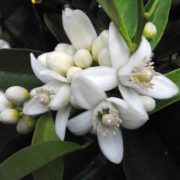Perfume-Induced Asthma: Understanding Triggers, Symptoms, and Prevention
Perfume is a popular personal care product that many people enjoy wearing. However, for individuals with perfume-induced asthma, the experience can be far from pleasant. In this blog post, we will explore the topic of perfume-induced asthma, including its triggers, symptoms, diagnosis, and management strategies. We will also provide helpful tips for individuals who are sensitive to fragrances.
Table of Contents:
-
What is Perfume-Induced Asthma?
-
Common Triggers of Perfume-Induced Asthma
-
Symptoms of Perfume-Induced Asthma
-
Diagnosis and Treatment
-
Prevention and Management Strategies
-
Tips for Fragrance-Sensitive Individuals
-
Opt for natural scents or essential oils instead of synthetic fragrances
-
Conclusion
What is Perfume-Induced Asthma?
Perfume-induced asthma, also known as fragrance-induced asthma or scent-sensitive asthma, is a condition in which the inhalation of certain fragrances or scented products triggers asthma symptoms.
Asthma is a chronic respiratory condition characterized by inflammation and narrowing of the airways, leading to symptoms such as coughing, wheezing, chest tightness, and shortness of breath.
Common Triggers of Perfume-Induced Asthma
Various fragrances and scented products can act as triggers for perfume-induced asthma. Some common triggers include perfumes, colognes, body sprays, scented lotions, air fresheners, and cleaning products. It’s important to note that not all fragrances will affect every individual with asthma, as sensitivity can vary.
Symptoms of Perfume-Induced Asthma
When exposed to triggering fragrances, individuals with perfume-induced asthma may experience a range of symptoms. These can include coughing, wheezing, difficulty breathing, chest tightness, throat irritation, headaches, and even skin reactions. The severity of symptoms can vary from mild to severe, depending on the individual and the level of exposure.
Diagnosis and Treatment
If you suspect that you have perfume-induced asthma, it is crucial to consult with a healthcare professional. They will conduct a thorough evaluation, which may involve a detailed medical history, physical examination, and lung function tests. These tests can help determine if fragrance exposure triggers your asthma symptoms. Once diagnosed, treatment options may include medications to manage symptoms and prevent asthma attacks.
Prevention and Management Strategies
To effectively manage perfume-induced asthma, it is important to implement preventive strategies and lifestyle modifications. Here are some practical tips:
- Avoidance of Triggering Scents Identify the specific fragrances or scented products that trigger your asthma symptoms and make a conscious effort to avoid them. This may involve reading product labels, choosing fragrance-free alternatives, and informing others about your sensitivity to fragrances.
- Creating Fragrance-Free Environments Encourage fragrance-free policies in your home, workplace, and public spaces you frequent. Proper ventilation and air purification systems can also help reduce the concentration of airborne fragrances.
- Personal Care and Hygiene Tips Opt for fragrance-free personal care products, such as soaps, shampoos, and laundry detergents. Choose unscented or naturally scented alternatives whenever possible. When using scented products, consider using them sparingly or in well-ventilated areas.
- Medications for Symptom Relief Consult with your healthcare professional about appropriate medications to manage your asthma symptoms. These may include quick-relief inhalers for immediate relief during an asthma attack or long-term control medications to prevent symptoms.
- Asthma Action Plans Work with your healthcare provider to develop an asthma action plan. This plan will outline steps to take in case of symptom exacerbation, emergency contacts, and medication instructions. Following your action plan can help you respond effectively to asthma triggers, including perfume-induced symptoms.
Tips for Fragrance-Sensitive Individuals
If you are sensitive to fragrances, consider the following additional tips:
- Inform friends, family, and coworkers about your fragrance sensitivity to foster understanding and cooperation.
- Test new products cautiously by applying them to a small area or using them in well-ventilated areas.
- Carry a small mask or scarf to cover your nose and mouth when exposed to triggering scents.
- Seek support from fragrance-free communities or support groups to connect with others facing similar challenges.
Opt for natural scents or essential oils instead of synthetic fragrances
If you are allergic to perfume or you suspect to have perfume-induced asthma what can you wear? In these cases opting for natural scents or essential oils instead of synthetic fragrances can be a beneficial approach. Synthetic fragrances, commonly found in many commercial perfumes and scented products, often contain a complex mixture of chemicals that can trigger asthma symptoms in sensitive individuals. On the other hand, natural scents and essential oils are mainly derived from plant-based sources and offer a safer alternative.
Natural scents can refer to the aroma of flowers, herbs, spices, fruits, and other botanicals plus a few aromas of animal sources. These scents can be obtained through various methods, including steam distillation, cold-press extraction, or solvent extraction. Natural scents are typically derived from the essential oils present in these botanical sources. They offer a wide range of fragrances that can be used in personal care products, home fragrances, and perfumes.
Choosing natural scents can be advantageous for individuals with perfume-induced asthma for several reasons:
- Reduced Chemical Load: Natural scents are often free from the synthetic chemicals commonly found in commercial fragrances. This reduces the potential for triggering asthma symptoms or causing sensitivities in fragrance-sensitive individuals.
- Individual Sensitivity: While everyone’s sensitivity to fragrances may vary, some individuals find that natural scents are better tolerated compared to synthetic fragrances. The simpler composition and absence of certain chemicals in natural scents may contribute to this.
- Customization: Natural scents can be blended and customized to create unique fragrances tailored to individual preferences. This allows individuals to control the intensity and combination of scents, potentially reducing the risk of triggering asthma symptoms.
- Essential Oils can be used for their aromatic, therapeutic, and cosmetic benefits. They have gained popularity as natural alternatives to synthetic fragrances due to their diverse scents and potential health benefits.
When using essential oils as an alternative to synthetic fragrances, it’s important to consider the following:
- Quality and Purity: Ensure that you are using high-quality, pure essential oils obtained from reputable sources. This helps to ensure that the oils are free from contaminants and adulterants that could potentially trigger asthma symptoms.
- Dilution and Inhalation: Essential oils are highly concentrated and should be diluted properly before use. Diluting essential oils in alcohol or carrier oil, such as sweet almond oil or jojoba oil, helps to reduce the risk of sensitivity. Please see also our PerfumeTherapy fragrances that are a single note diluted in pure NOT denatured alcohol
- Inhalation methods, such as inhaling from a tissue, can provide a gentle and controlled exposure to the aroma. Using a diffuser is not suggested because will diffuse an important amount of perfume in the air
- Individual Sensitivities: While essential oils are generally considered natural, it’s important to remember that individuals may still have sensitivities or allergies to specific oils. Some essential oils, such as citrus oils or strong floral scents 1, can be more likely to trigger asthma symptoms in sensitive individuals. It’s recommended to test new essential oils cautiously and discontinue use if any adverse reactions occur.
By opting for natural scents and essential oils, individuals with perfume-induced asthma can have more control over the fragrances they are exposed to. However, it’s essential to understand individual sensitivities and reactions and make informed choices when selecting and using natural scents or essential oils. Consulting with a professional or aromatherapist can provide personalized guidance and recommendations based on your specific needs and sensitivities.
Conclusion
Perfume-induced asthma can significantly impact the quality of life of individuals who are sensitive to fragrances. By understanding the triggers, symptoms, and management strategies outlined in this blog post, you can take proactive steps to minimize exposure, reduce symptoms, and lead a healthier and more comfortable life. Remember, always consult with a professional for a proper diagnosis and personalized treatment plan.
NOTES
-
Citrus Oils: Citrus essential oils, such as orange, lemon, lime, and grapefruit, are derived from the peels of citrus fruits. They are known for their vibrant, uplifting aromas. However, these oils contain compounds called limonene and linalool, which are considered volatile organic compounds (VOCs). In some individuals with asthma or fragrance sensitivities, these compounds may cause respiratory irritation and trigger asthma symptoms such as coughing, wheezing, or shortness of breath.
Strong Floral Scents: Certain essential oils derived from strong floral scents, such as jasmine, ylang-ylang, rose, or lavender, may also pose a potential risk for individuals with perfume-induced asthma. While floral scents are beloved by many, they can contain volatile compounds like linalool, geraniol, or eugenol, which may act as respiratory irritants. Individuals who are particularly sensitive to these compounds may experience asthma symptoms upon exposure to strong floral fragrances.
REFERENCES
























Leave a Reply
Want to join the discussion?Feel free to contribute!